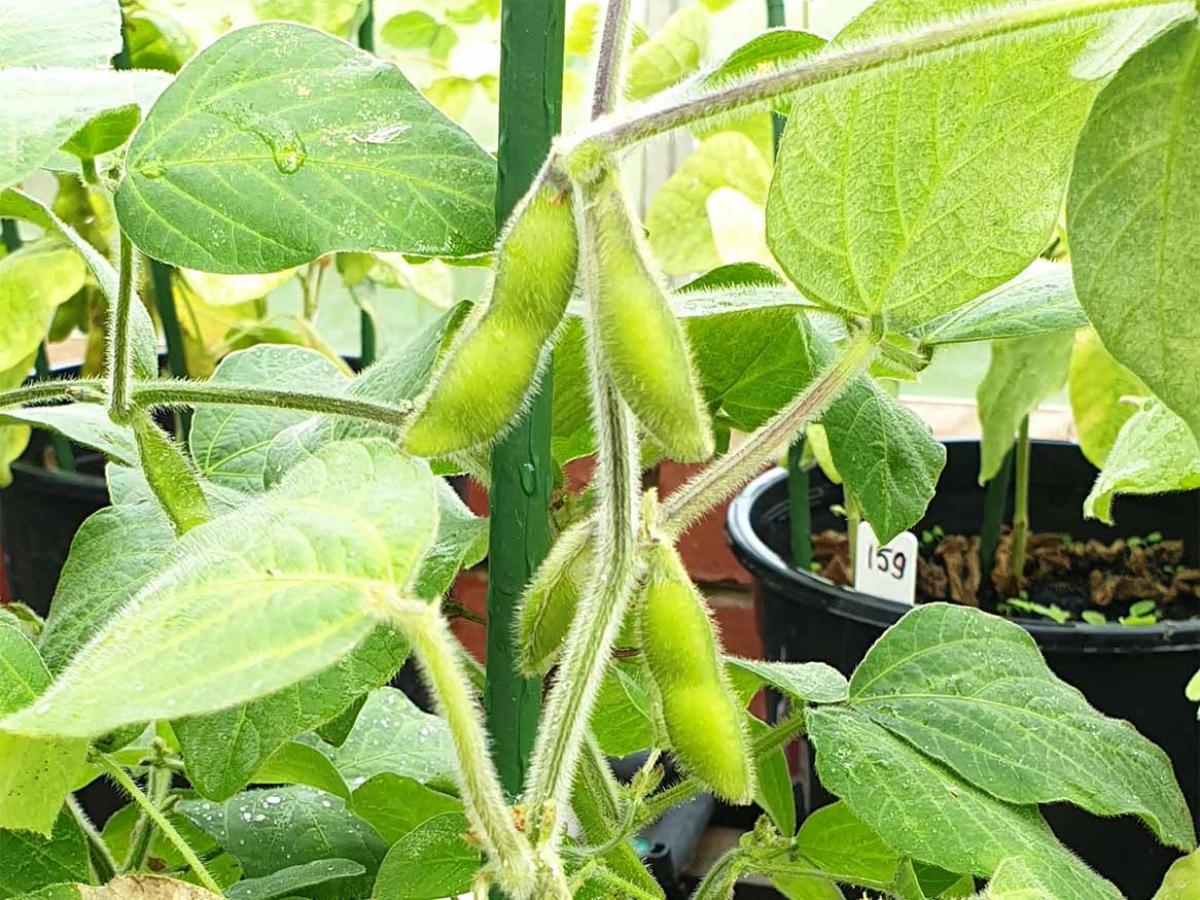Evaluation of soybeans as a crop in South Australia
Although soybean is grown across a wide range of latitudes in Australia, its production within South Australia is limited. In tropical areas of Australia, soybean can be grown after the summer rainfall but given the dry summer conditions normally experienced in South Australia, growing soybean can be more problematic.

Soybeans are sensitive to photoperiod (flowering in response to the shortening of day length) and have varied responses to environmental extremes (such as drought stress). Pathogens (such as Phytophthora sojae and Sclerotinia spp.) may also present a challenge in southern environments. Anh Pham currently leads a program at the University of Adelaide which is evaluating the characteristics of a diverse set of germplasm for their potential to adapt to South Australian conditions. In particular, the program is interested in identifying potential sources of water stress tolerance and disease resistance. The following projects are therefore available:
- Identification of soybean maturity best suited to the South Australian environment
This project would identify lines with suitable maturity and/or competitive yield to be cultivated in South Australia (SA) at a commercial scale from a soybean germplasm panel. Molecular markers linked with known maturity genes will be used to decipher the genetic controls of maturity for lines that appear best suited for cultivation in SA environments. - Improved water stress tolerance
This project would investigate the impact of different levels of water stress at different times of the lifecycle on various plant growth parameters (such as flowering, yield potential and end quality) for a soybean germplasm panel. - Improved disease resistance
This project would investigate the response of a soybean germplasm panel to the main pathogens and include a comparison of tolerant and susceptible plant-pathogen interactions.
Students wishing to further their knowledge of agronomy, plant-pathogen interactions, plant physiology, and molecular biology would be ideally suited to this field of research. Dependent upon the project, techniques or skills learnt will include microscopy; aseptic and microbiological techniques; genetics; molecular breeding, data analysis and interpretation.
Supervisors

Dr Anh Pham
Postdoctoral Research Fellow in the School of Agriculture, Food and Wine. Her expertise lies in genetic diversity and breeding for yield improvement in a wide range of crops. She currently oversees the Soybean Breeding Program at the University of Adelaide.

Professor Amanda Able
Professor in Plant Science in the School of Agriculture Food and Wine. Her areas of expertise are broad ranging across plant physiology and plant pathology. They include epigenetics of plants faced with stress, understanding plant-pathogen interactions, stress priming and transgenerational inheritance, postharvest physiology and mycology.
Research areas: Agricultural Science | Plant Science
